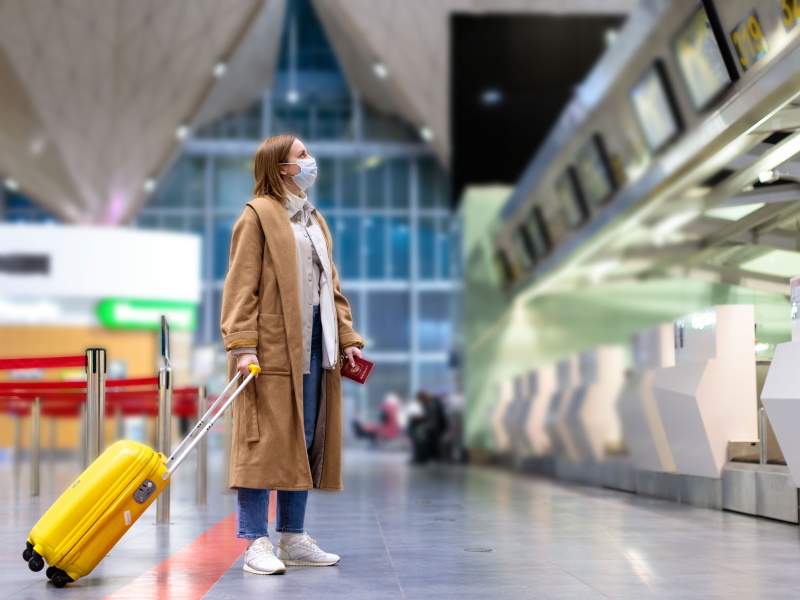A pandemic is a rare occurrence and thankfully is not something we necessarily need to get used to as a “new normal” forever and ever. Hopefully, one day the fallout from 2019 that shut down a lot of 2020 will be a thing of the past. However, when COVID-19 hit, it changed the way we live all around the world. Some things became a burden, but other things opened our eyes to an entirely new way of doing things. Let’s take a look back through history about how previous pandemics impacted our lives and then look at some examples of how the pandemic changed the way we live and act and how the world won’t ever be the same anymore.
Earliest Recorded Plague
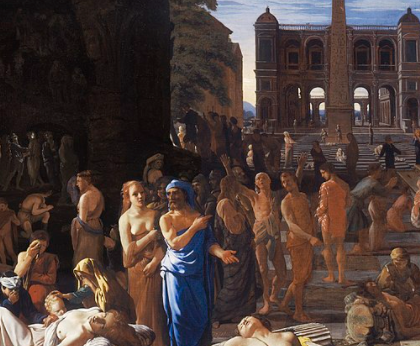
There may have been pandemics before, but 430 B.C. Athens was the earliest recorded pandemic in the history books. It took place during the Peloponnesian War. The illness made its way through Libya, Ethiopia, and Egypt and then crossed the Athenian walls as Spartans laid siege. It is thought that as many as two-thirds of the population succumbed to the plague and died. Unlike COVID, this plague created red skin and lesions with a bloody throat and tongue. Later, experts had suspected that it was typhoid fever. Whatever it was, it weakened the Athenians as they were defeated by the Spartans.
Most Well-Known Pandemic

Perhaps the most well-known pandemic in history is the Bubonic plague. It was a 6th century pandemic that resulted in between 25 to 50 million deaths. It went down in the history books as one of the most deadly threats that humankind has ever faced. Unlike COVID, this illness was caused by bacteria and not a virus. Studies since have revealed that it most likely came from infected fleas. Also unlike COVID, its fatality rate was as high as 60%. Still, the disease often presented itself with flu-like symptoms. As a result of this pandemic, a bird-like mask was developed. The purpose of the mask was so that it could be packed with sweet smelling dried flowers, herbs, and spices to keep away bad smells which were believed to be the cause of the illness.
The Spanish Flu

The last pandemic that is most often compared to the Corona Virus pandemic is the Spanish Flu outbreak of 1918. It was the most deadly, infecting about 500 million people around the world and killing as many as 50 million people. This disease came in more than one wave with the last wave being more deadly than the first. It was called the Spanish Flu, but it did not originate in Spain. It was named such because Spain was a neutral country with free media that covered the outbreak while other countries suppressed news coverage during war time. Since it was wartime, it quickly spread to members of the military who were stationed abroad and impacted France, China, Britain, and the United States.
Other Pandemics Throughout History

We have learned lessons and changed health care and other aspects of our lives as we have lived through several pandemics or localized outbreaks of unknown illnesses. Throughout history, we have experienced the Athens illness, the Antonine Plague, the Cyprian Plague, the Justinian Plague, Leprosy, The Black Death, The Columbian Exchange, Cholera, The Third Plague, Fiji Measles, the Russian Flu, the Spanish Flu, the Asian flu, HIV/AIDS, SARS, and now COVID-19. Sadly, many lost their lives throughout these diseases, and many families grieved and lost everything they had worked hard for. Thankfully, with each new devastation, we rise above, build our faith, and make advancements.
Better Health Habits

One of the most alarming factors that became evident throughout the COVID-19 pandemic is how many people were not aware of basic health habits. While many were shocked to discover how others did not follow these healthy habits regularly, it was an opportunity to educate. People were made aware of proper daily hygiene such as how long to wash your hands, how to sanitize surfaces, when to stay home and not spread disease, and how to sneeze or cough into your elbow. Other health habits were taught and begun to be put into action by those who did not know or did not practice them before.
Telehealth Doctor Visits
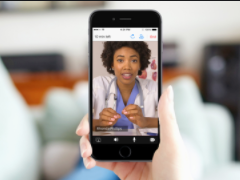
As cases of Corona Virus started to grow, people became leery of visiting a health care clinic or hospital where they could potentially be exposed to the virus. Because of this, some missed the opportunity to be checked out when they needed it. Surgeries and procedures that were not considered urgent were rescheduled or put off indefinitely. In response to this need that was being pushed aside, doctors began seeing patients through the use of Telehealth. While they could not do a thorough examination that requires touch, they could examine, question, and prescribe medications for many through the use of technology.
Plexiglas Protections
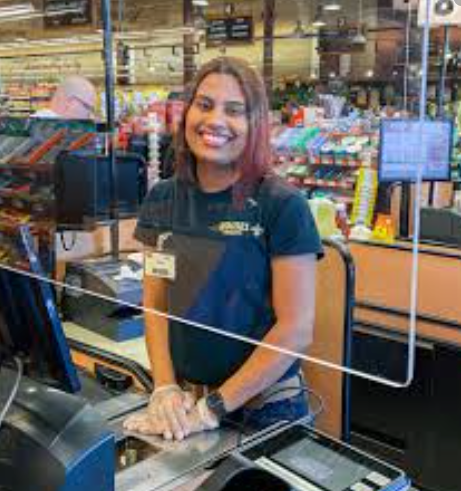
As a safety precaution measure, stores, banks, drive-thrus, and just about everywhere that deals with the public face-to-face put up Plexiglas panels for protection. This is one of those solutions being used as a precautionary step that will hopefully stick around since it helps to cut down on transmitting airborne viruses. One extra step that would be nice is if they would make the Plexiglas bullet proof as well to help protect against active shooters. But, for now, these Plexiglas divider walls are a nice addition to any public office, bank, or store. You are able to still see the smiling face of the worker but not be in danger of a sneeze, for instance, splattering you.
Panic Buying

As news of the pandemic and eminent shut downs began to spread, stockpiling and panic buying began. Stores across Asia and Europe began buying out and hoarding groceries and hygiene products. Stores in Germany and the Netherlands coined the phrase hamster buying. Supplies of hand sanitizer sold out in France and Britain. There was very little toothpaste or toilet paper to be found. In the United States, shelves emptied of toilet paper, paper towels, Lysol wipes and disinfectant sprays. When a highly demanded item was found, limits were put on purchases to only buy one or bundles of toilet paper were split into individual rolls.
New Vocabulary

New words and acronyms have been added to our everyday speech. We now all universally understand acronyms such as HBL Home Based Learning, SHN Stay Home Notice, PPE Personal Protective equipment. We also learned the difference between a quarantine and isolation and have become accustomed to the frequent public service announcements urging everyone to stay at home, or to be together apart, and, “We are all in this together”. It has been presented to us ad nauseam to get the message across. Of course, the obvious acronym is the actual name for the virus, COVID-19 which stands for corona virus disease. It had formerly been referred to as 2019 novel corona virus since it was discovered in 2019.
Scientific Terms Became Household Words
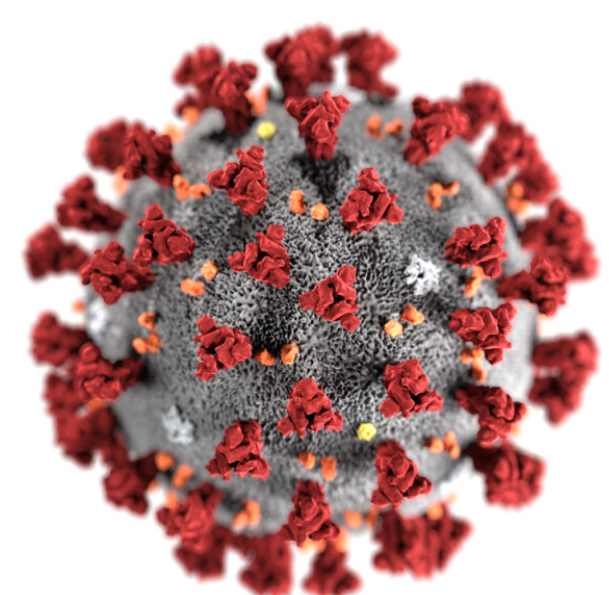
Scientific terms have become everyday, household words. Terms like RO, which is a measure of contagiousness, RNA Ribonucleic acid, quarantine, isolation, strain of virus, and other terms have become used by everyone. Other terms like “wipe down” or “second wave” have also become the norm as everybody seems to understand their meaning with no need for a dictionary explanation or an instruction in science. Even more obscure terms like, “cytokines storm” or “hydroxychloroquine”, triage, field hospital, contagion factor, death rate, herd immunity, and other formerly unknown or uncommonly used terms have become commonplace, and everyone seems to know how to read scientific graphic charts.
Visiting Grandma
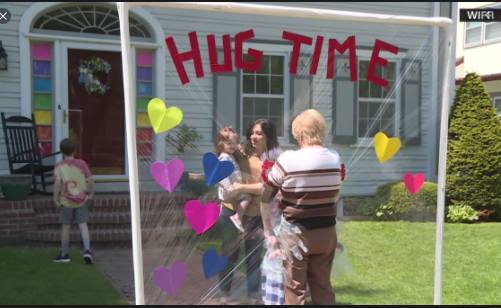
The elderly were the first to get hit hard by the pandemic. So, it only proves to reason that they would be the first to be shut down and protected. The problem is that this put them isolated from family and friends who could no longer come to visit them. Clever activity directors at retirement center facilities came up with ways to connect that will hopefully carry forward after the threat of the disease is over. One clever person came up with an entire hug station that made it possible to safely have physical contact between grandma and grandchildren. It works much like an isolation gown.
Mental Health
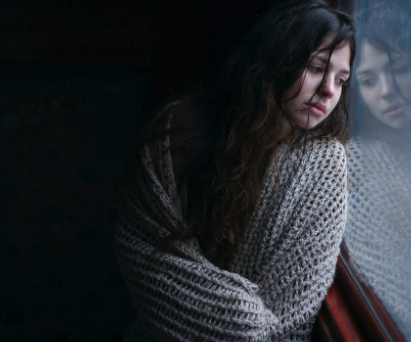
While everything started shutting down and people were ordered or strongly suggested to stay at home, some were left completely isolated living alone. This led to an increase in anxiety, depression, and even suicide for far too many. They may have been safe from COVID, but they were now faced with mental struggles and no one to talk to face to face. Counselors and Psychological health care workers were forced to do many consultations virtually, and for some this was not a viable option. The pandemic, in this regard, has hopefully brought awareness of those struggling with mental health issues.
Test Kits
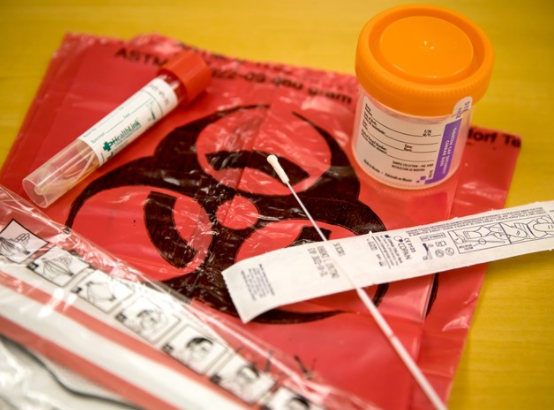
As the pandemic spread, countries quickly realized that the first important step was to attempt to stop the spread and contain the virus. One very necessary component to do so would fall on the ability to accurately and quickly test to see who had the virus. This meant test kits would need to be developed that could handle the vast amounts of daily testing. But, waiting 3-14 days for results was not ideal. Rapid tests were soon made available which allowed those who had been exposed to get peace of mind quickly and return to work faster. Even at-home tests have been authorized for use in some areas.
Vaccines
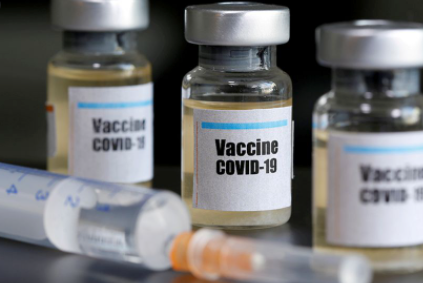
Vaccines have been a part of living since way back when small pox invaded our communities. Most vaccines take years to develop and are delivered in the face of much controversy. The COVID-19 vaccine, however, broke records and bypassed traditional loopholes that hold back vaccines from being approved and used. Companies like Pfizer and BioNTech have been developing a vaccine and among the first to gain approval for use. The speed at which they were able to develop and manufacture this vaccine has raised the bar for future vaccine development. Whether that is a good thing or questionable is still yet to be seen. But, it’s certainly an outcome from the pandemic that puts science in the spotlight.
Everybody’s An Expert MD
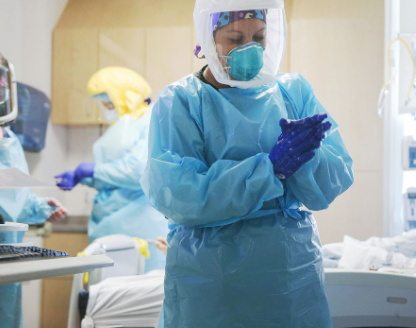
Maybe it’s not on the top of the list of benefits that came from the pandemic, but is certainly something that changed especially on social media. It seems like everyone suddenly became an expert in both science and medicine. Everyone seems to have an input or opinion about whether or not masks work, when you should be tested, and how is the best way to keep the spread contained. On the upside, with telemedicine and online searches, medical information has become readily available. With telemedicine, doctor visits are literally happening in the palm of your hands now and will most likely continue.
Hand Washing

Everyone suddenly became aware of how to properly wash their hands. If you didn’t know before, you do know now that you should always wash your hands before, during, and after food preparation, before and after eating food, before and after caring for someone at home who is sick, and before and after treating a cut or wound. Everyone also now knows that they should wash their hands after using the toilet, changing diapers, or blowing your nose or coughing or sneezing. Everyone also learned that proper hand washing requires a full 20 seconds of rubbing hands together and washing under the fingernails before rinsing.
Sanitizing Stations
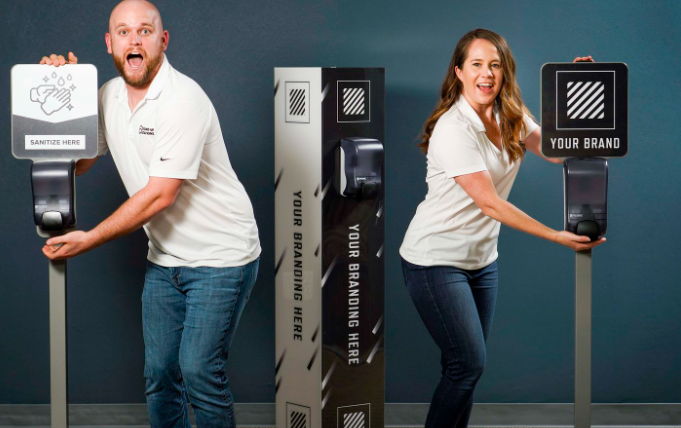
Not only have people become more aware of the need for general hygiene, but stores and other public buildings have implemented sanitizing stations at their entrances and near shopping carts. When you cannot wash your hands with soap and water, hand sanitizer has become the backup option as a solution. Sanitizers do not get rid of all types of germs, but they do quickly reduce the number of germs on hands and surfaces like cart handles you are using to push through a grocery store. It’s a nice and convenient option to know that hand sanitizer is readily available wherever you enter or exit.
UV Phone Sanitizers
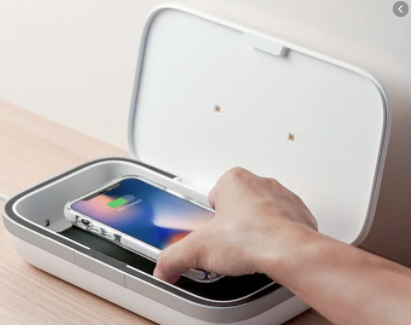
Many studies were conducted trying to get to the root of how COVID was spread and how to kill the virus. One successful sanitation technique was discovered that the use of UV light is effective. One of the most touched items that we use on a daily basis is our cell phone. While we may have learned how to wash our hands properly for disinfection, it is of very little use if we then pick up our cell phone to use without it being cleaned. You cannot simply drop your phone in soapy water to clean it, so these UV phone cleaners are perfect. Not only phones can be cleaned here. Whatever will fit inside will be cleaned, like pacifiers, smart watches, keys, or ear buds.
More Time At Home
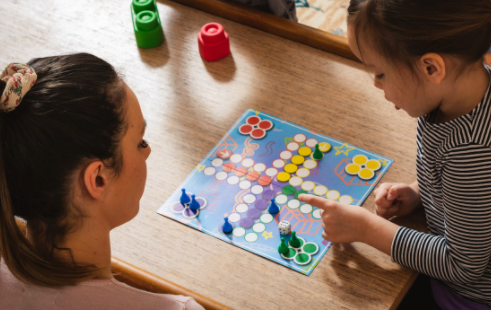
While lock downs and stay at home orders took most people by surprise, many were equally surprised at how much they actually enjoyed spending more time at home with their families. The busy lifestyles of work and children in school activities often takes its toll on being able to connect and build relationships as a family. But, being forced to stay at home opened up opportunities to reconnect. Eventually, work places and schools will open back up. However, the lessons learned from this time spent at home will carry over for many families who have started making more of a concerted effort to build relationships within their home.
Online Learning
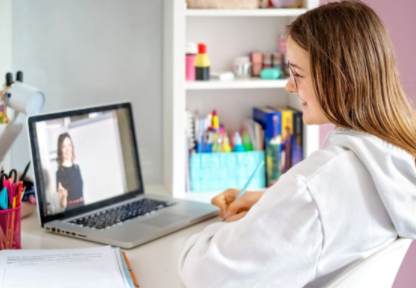
Schools had to scramble to figure out how to continue instructing and educating their students without the ability to be live and in person in the classroom. Most turned to the use of technology. Teachers sent assignments home with parents and then began to set up online classes through Zoom and other virtual platforms. While this isn’t necessarily an ideal way to learn, schools and universities now know that there are more potential for distance learning. It also provided a more convenient method of learning even though it is far from hands on or one-on-one. Going forward, schools will be able to glean the benefits for days when it is not possible to be in person in the classroom.
Home Swimming Pools
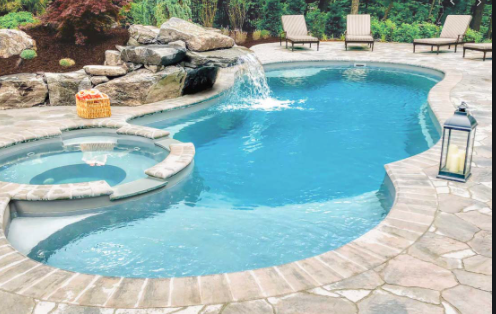
Since public pools were closing down instead of opening for the season in many spots, and everyone was stuck at home, tons of families took it on themselves to have their own personal backyard pool installed. Pool sales were at an all-time high. Many pool stores had to put requests for pool installations on a long back order list because the demand was so high. Some were on a waiting list that extended for months. Still, those who got in on it early were able to not only purchase and install a home backyard pool during the pandemic but also have time to enjoy it.
Online Shopping
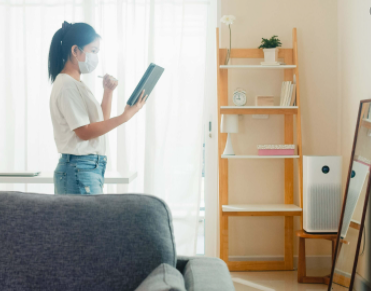
Since most of the population was stuck at home unable to get out, or not wanting to risk their health by possible exposure in a store, online shopping skyrocketed. Even those who never understood or enjoyed shopping online before suddenly began enjoying the convenience and safety of selecting necessities from their computers, tablets, or phones. Even holiday shopping that normally sends shoppers to the stores in droves instead put shoppers searching online for sales and deals. A lot of gift giving for special occasions and holidays is easily done from sites like Amazon who makes it easy to select items off of wish lists and have it sent directly to the recipient’s home.
Spending less Money Eating Out
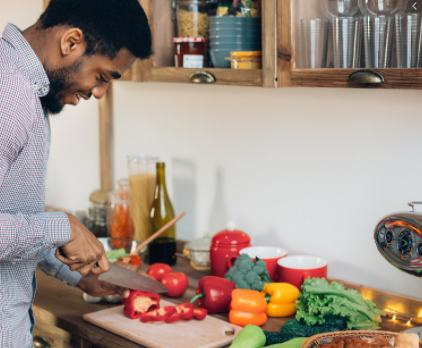
Many cities issued mandatory closures of bars and restaurants throughout the pandemic. While some opened with restrictions in place, others had to shut down for a second time when the COVID cases escalated in certain areas. Because it was no longer convenient or safe to eat out, many turned to preparing meals at home. They found that, while it was more time consuming to prepare the food themselves, it was also a money-saving idea. People began to spend less on eating out and really began evaluating their restaurant budget to adjust for less spending on eating out which will surely carry over post-pandemic.
Religious Services
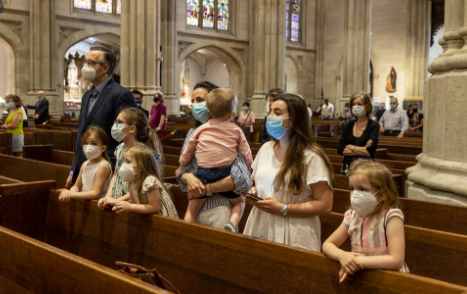
The pandemic shut down everything for awhile, and many places are still struggling to figure out what can safely reopen. Other places never shut down but still felt the brunt of the worldwide reaction. Religious services, such as church or synagogues and mosques, were hit hard. Most were able to adapt by turning to Facebook Live or Twitch and other live video streaming to connect their congregations and members. Still, many began to feel disconnected throughout and became frustrated at the notion that they were not allowed into the building. It became a point of great controversy and will change forever how people worship.
Smoking Habits Changed
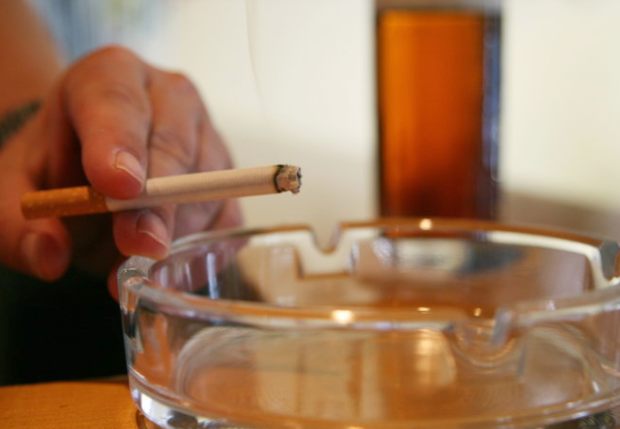
You might think that with all of the face mask wearing and social distancing, it would be a good time to quit smoking. However, throughout the COVID-19 pandemic, smoking has actually been on the increase. No doubt, the reason for this is most likely heightened anxiety. Still, it would otherwise be a great opportunity to quit smoking since you are forced to wear a mask that makes it difficult to access your mouth to get a cigarette inside. Nonetheless, whenever emotional health is at risk people are going to turn to habits that make them feel comforted. Smoking and drinking alcohol are two habits that tend to increase when uncertainties and worries abound.
Face Mask Etiquette

Whether you are for wearing face masks or joining in protests to throw off the mask, the pandemic has taught everyone the proper face mask etiquette. A face mask should be worn over the nose and mouth, not pulled down. Any disposable mask should be worn only once, and cloth masks should be laundered between use. There should not be large gaps in the mask. The top portion should fit across the bridge of the nose, preferably with a wire adjustment to fit closely so as not to steam up glasses. Going forward, maybe every country will adopt wearing a face mask as the norm for containing sickness, like countries such as Japan already have.
Abandoning Hotels
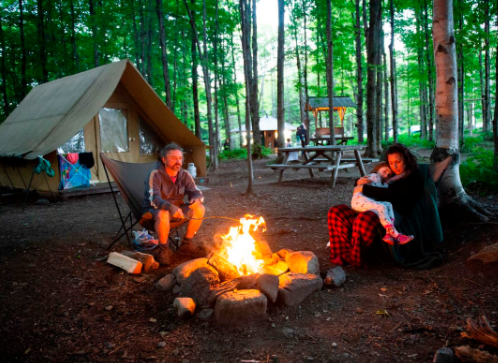
Another area that was drastically impacted is travel. While, this is bad news for the travel and hospitality industries, families discovered that they could save money and establish more family togetherness by camping or avoiding hotels in other ways. Some families discovered how nice it is to get in touch with nature. They also loved how they didn’t have to worry about who shared the bed before them or whether or not the maids had properly sanitized. Some families even went out and purposely purchased a camper or an RV so they could travel safely and inexpensively without the need for a hotel.
Work From Home
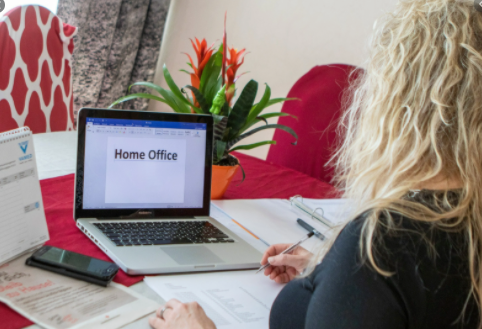
Lock downs forced every corporation and small business to make decisions as to how to keep their workers stay safe. This typically meant that millions of workers were asked to work remotely from their homes. While, finding a quiet place to work at home when you have children doing online learning and many other interruptions was challenging for some, others found it to be a nice respite. Working from home meant saving time and stress sitting in traffic to and from work. Many embraced the idea of working from home, and the idea of remote work opportunities has no doubt become more acceptable.
Buying Healthier Foods
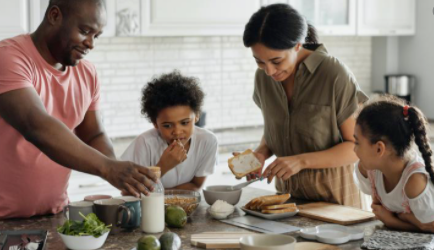
Since the pandemic sent families to be isolated inside their own homes and not able to visit restaurants, many discovered that they would need to buy groceries to be delivered to their homes. While many started bingeing on chips and other junk foods, it didn’t take long for others to realize this was a perfect opportunity to provide healthy foods for their families. These families discovered that they could choose to purchase healthy fruits and vegetables and prepare them at home giving them complete control over the food that their families eat. Oddly, while items like toilet paper was in short supply, fresh food was readily available.
Shaking Up Traditions
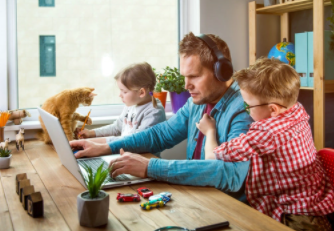
One thing that came out of how we responded to pandemic shut downs and safety measures for health is that everyone was put in a position to either be completely defeated and discouraged or to rise above and use some creative thinking to get through it all. Since the entire family was constrained to within the house’s four walls, it didn’t take long to realize family traditions would have to be adjusted. One thing that had been missing in many households was the traditional family meal time around a table. Even things we previously took for granted, like having our hair cut, was suddenly done at home. The pandemic made traditions like this necessary and possible again.
Relying On Delivery Services

People can live locked up behind the walls of their homes, but they eventually need food and other necessities. Being stuck at home left everyone needing to purchase everyday items and food but not always allowed or able to go directly to the store to get them. This meant that the need for delivery services skyrocketed. If anyone was looking for a job, many found work with food delivery services like Instacart and GrubHub in America. Even individual grocery stores and other stores added delivery services to their shoppers. Some would come straight to your door, while others would bring whatever you needed out to your car curbside.
At-Home Birthday Parties and Graduations

One of the hardest adjustments for moms and dads was watching their children reach milestone birthdays without being able to have a party. For the senior high school class of 2020, they were held in limbo not knowing if they would graduate or have a ceremony. This was just as tough on the parents as it was for the students. The answer was at-home virtual birthday parties and graduations. Some opted for drive-by gift stations on their driveway where people could socially distance but still bring a gift. For graduation, many opted to go online featuring the graduate’s photo but still without the chance to walk the stage to get the diploma.
Communicating Through Technology
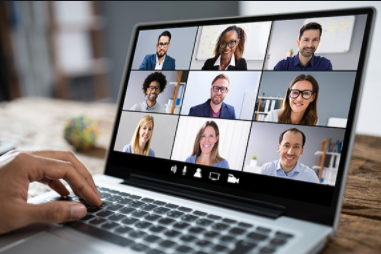
Technology became a life thread and go-to method of connecting. Whether it was a business meeting or a gathering of friends, everyone found a way to connect. Platforms like Zoom popped up and became a household name. While there was a learning curve to figure out how each platform worked, it will always remain an option for connecting from far away. People were able to see the faces of those who could not be there in person. Most likely, even more choices in addition to Zoom, Google Hangouts, and such, to use for technological connections with groups and individuals will be developed as we move forward.
Entertainment
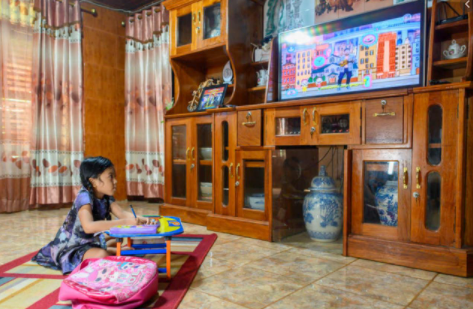
The entertainment industry was another area that was hit hard and silenced to a great degree. Because there was no new programming or movies being filmed and no live performances, families were forced to find their own entertainment. Sometimes this meant watching DVDs or other pre-recorded options that they already had in their homes. Others chose to turn off the television and work on puzzles or other old-fashioned or traditional board games. Some even came up with their own creative entertainment. They discovered that they didn’t always have to sit in front of a screen to be entertained. These other creative ways to keep us entertained will stick with us.
Travel By Air
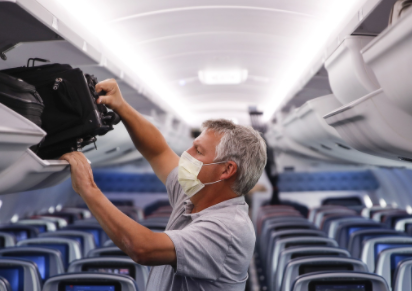
The travel industry was also hit very hard by the pandemic shut downs and closed borders. People stopped traveling by air unless it was absolutely necessary and possible. Many were leery to travel by air even before the pandemic, since they often would get sick after being stuck inside a closed cabin with recycled air for hours. Now, many more were rethinking their choice to travel by air during a pandemic where they could potentially contract the virus on the plane. Other airlines shut down flights, so it wasn’t even possible. Regardless, extra sanitation steps were implemented, some of which will hopefully stick with us.
Public Transportation

Public transportation is always an uncertain place for germaphobes. With all of the passengers coming on and off of the tram, taxi, subway, or buses everyday, the enclosed cars are a sure-fire place to come into contact with a variety of illnesses. During a pandemic, no one wants to take this chance. Wearing a mask and other sanitation steps were immediately implemented on public transportation. Of course, many don’t want to think of a world where everyone wears a mask in order to board public transportation. However, some of the safety measures will hopefully carry forward with the idea of being considerate to those around us.
Protecting Privacy
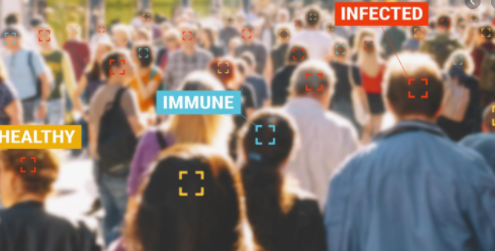
When the virus began to spread like wild fire, authorities began to try to get a handle on it all and put a stop to it to save lives. Technology companies began to develop apps to conduct contract tracing. While this put many minds at ease, it also raised a lot of questions about protecting privacy. Many became concerned and downright terrified that they were now under constant surveillance even if they are not aware they are being watched. Some of the more intense contract tracing technology implemented face recognition that would identify those who broke quarantine. As all of this technology is still being developed, others are working to maintain privacy.
More Surveillance
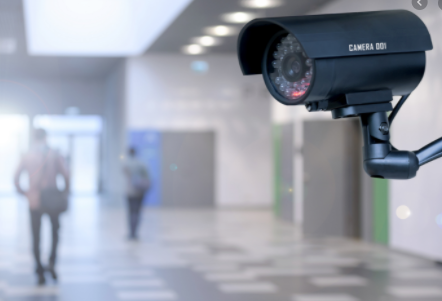
While some fear that their privacy will never be the same with all of the COVID tracing, there are some good that has come of it. Because of the need to go online and virtual with almost every aspect of daily life, more cameras were installed and set up. Surveillance cameras seem to be everywhere. This can be a good thing, or it can be a bad thing. But, there has to be good in it since because of the cameras, crimes that would otherwise go unnoticed are now being recorded in real time. Additionally, it creates a sense of security.
New Laws

Throughout the pandemic, as our way of life was disrupted and changed, new laws were enacted. For instance, in Israel mobile phone data is being used for contact tracing. In Singapore, contractual obligations were suspended. In America, exceptions were made for contracts such as small business loans or offering unemployment benefits to gig workers for the first time ever. Other areas of legal actions and hearing court cases virtually were implemented. Some court cases were extended or forgiven. Additional laws that had never been taken into consideration before were brought before the court in regard to stay-at-home orders and such.
Athletic Training
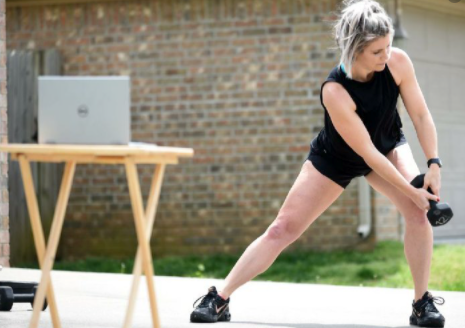
Another group of people who were deeply affected by the pandemic are the athletes who were training to take part in the 2020 Olympics. The Olympics were postponed and will most likely be postponed again or canceled all together. In the meantime, athletes all around, even those not in the Olympics, were forced to find a new way to train and stay ready and in shape to compete in their sport. In many cases, they could not have access to the gym or contact with their team. They had to find a new way, and for most this meant virtual training.
Exercising Alone

Not everyone is an Olympic athlete but many still have become used to going to a gym or a workout class to stay fit. For those, when gyms began to shut down, many turned to online subscription workout services or personal trainers who would come into their homes virtually for a personalized workout session. Nordic Track or The Mirror became popular. Other individual gyms or recreation centers developed their own workout sessions that people could tune into for an at-home exercise session. They missed the group interaction they were used to but still got the physical workout and personalized instruction from a trainer.
Viral Videos
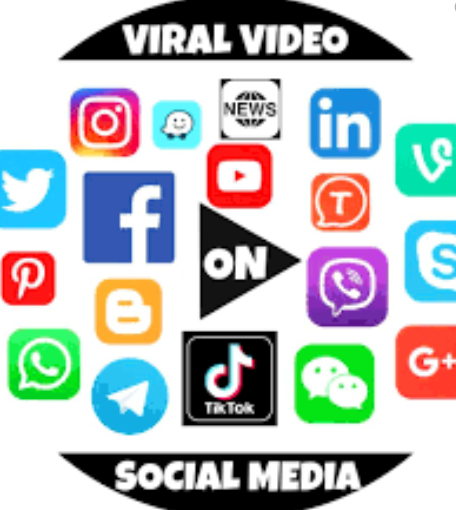
Since live studios shut down and no new movie filming was taking place during most of the shut downs, there were limited choices in new entertainment. In a search for something fun to watch, many became obsessed with short videos to enjoy. Sites like Tik Tok became popular because of the short videos that are uploaded and edited to watch. YouTube showed an uptick in views as well as Facebook live and other social media video sites. These videos went viral not only because they were fun to view but also because people were hungry for human connection and felt as if they were a part of the show.
Streaming Services
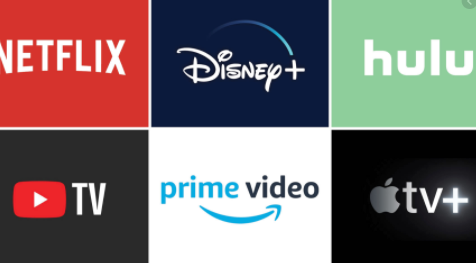
In search for things to watch to stay entertained while shut in at home, many turned to streaming services. Some even ditched their cable or satellite services in exchange for streaming services like Apple TV, YouTube TV, Amazon Prime Video, Netflix, Hulu, and Disney+. These services offer an inexpensive monthly payment that is usually less than a typical cable or satellite bill. Each service also streams their own original series. Since many people had time on their hands, they could now spend time binge watching their favorite series. The discovery of these services has been a game changer that will linger long after the pandemic is over.
Upgrading Sports Habits
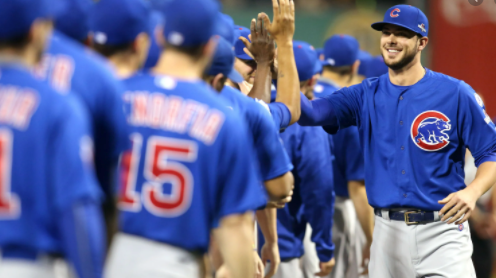
High-fives or physical touch have always been a common part of playing a contact sport. But, when given the choice of playing the sport you love on a field distanced from the other players or not playing at all, most jump at the opportunity to embrace a change of rules. For instance, from giving a ball a bit of a spit to help with the pitch or handshakes between teams, COVID-19 has likely changed these habits for good. When players were allowed to play again there were cardboard fans and distancing rules. Maybe this is a very good thing after all.
No Live Musicals
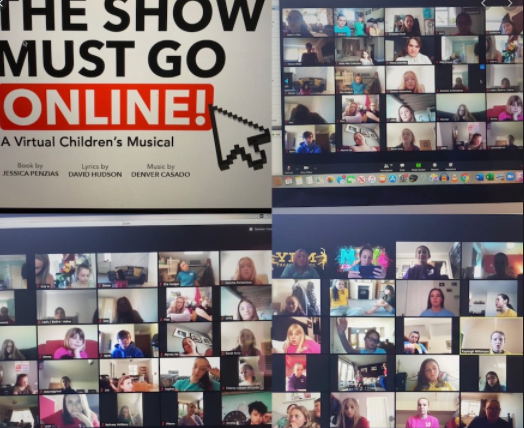
High school musicals and municipal theatre groups or professional on-stage shows all had to be canceled or revamped. People who were in charge of putting on musicals had to quickly get creative. This meant turning to online venues to keep the show going. After all, the show must go on. In this case, “The Show Must Go Online!” was the creative new musical that many students across America took part in simply so they could continue their love for singing and acting even in the middle of a pandemic. While it is ideal for an actor, even a budding actor, to do so in front of a live audience, creativity like this will no doubt live on.
Virtual Museum Tours
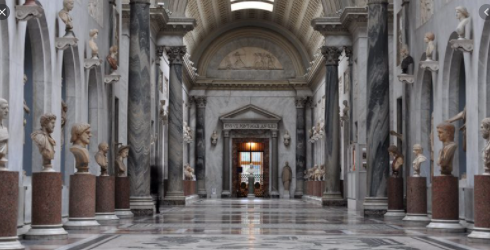
Like everything else in the entertainment and arts world, museums around the world also shut down temporarily. In order to maintain the vision of education and love for relics, many museums provided online museum tours for anyone who was interested. Some were offered free of charge. This allowed school classrooms to go on field trips without leaving the student’s home. It also allowed families to enjoy a trip to a museum during their vacation without leaving town. The only downside is that there could be no interactive hands-on exhibits. But, then many museum attractions don’t allow for touching anyway. So, you might as well see it on screen.
TV Reruns
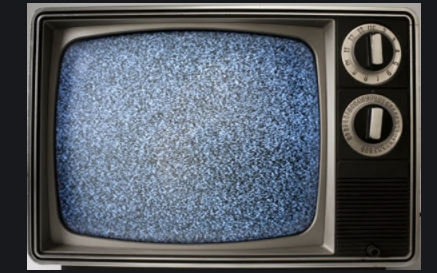
Television has been at a stand still in terms of creating new shows during COVID. Viewers turned to tuning into reruns of favorites. Some viewers went back to the beginning of television by watching classics that started television such as I Love Lucy or Burns and Allen. Others watched reruns of more recent shows or shows their parents grew up watching, like Seinfeld, Friends, or even farther back with the likes of The Brady Bunch, Gilligan’s Island, The Andy Griffith Show, or Different Strokes. Regardless of your favorite television era, most families had time to run the gamut of reruns.
Imported Goods

Immediately, upon news that COVID had reached its border, many countries shut down trade with other countries, especially China. China is a large exporter of goods around the world, so this was sure to have a huge impact on countries who rely on them for imported goods. The result, however, seemed to prove profitable in countries who took the challenge to start manufacturing their own items that they would otherwise have had imported. This made the countries who were successful at this able to be more self reliant from within. As we move forward, this means more independence and less reliance on other countries for goods.
E-Wallets
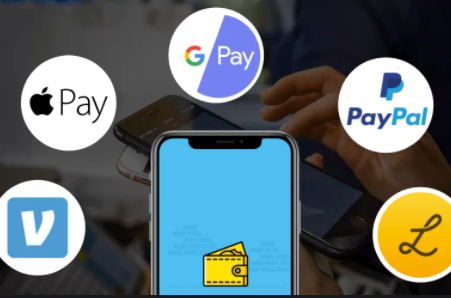
As it became undesirable to share and touch items such as paper money or coins, more and more people and businesses began to turn to a touch-free way to pay for items and services. E-wallets that allow for online payments became very popular. E-Wallets that were once used by some was now being used by many who were discovering the benefits of paying without transferring currency from hand to hand and risking infection. Instead, at the click of a button on your own handheld phone, or a swipe in front of a card reader, payment was made. This convenience will live on long after the pandemic is over.
Creative Business Ideas
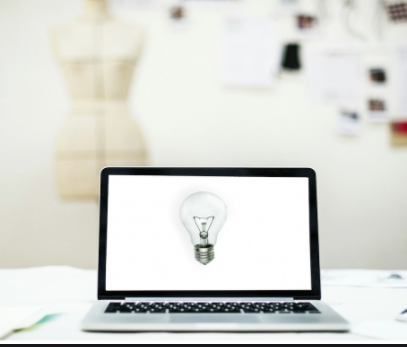
Businesses have had to find new ways to reach customers. Mostly, this is now being done online, even fishmongers have found their niche online. Drive-in theaters have turned into places for drive-in concerts. Seeing a movie from your car made a return in South Korea, Britain, and America. Even graduations were done with the audience in their own vehicles on a drive-in theatre or old mall lot. Everything sparked businesses to come up with creative ideas in order to stay in business. Some companies even managed to grow through it all and will continue to surge upward in their business dealings. Others came up with new and creative ideas.
Politics and Elections
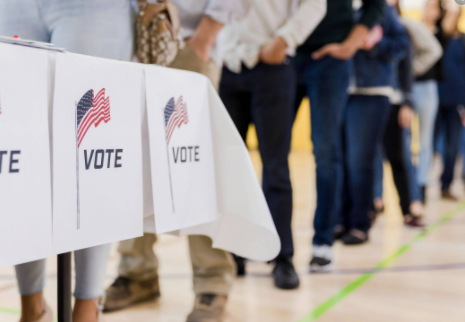
COVID has changed the world of politics and elections. One very big election that it impacted was in America for the presidential election where much more voting than ever before was done through the mail rather than in person. Regardless of the election outcome, the virus certainly turned political in a hurry where it was used to launch political stances in regard to ordering lock downs or protests for freedom. Some even argue that the entire pandemic was manufactured for political reasons only. That controversy and discussion will probably continue on for years to come as we potentially see the fall out whether for good or otherwise.
Tapped Creativity
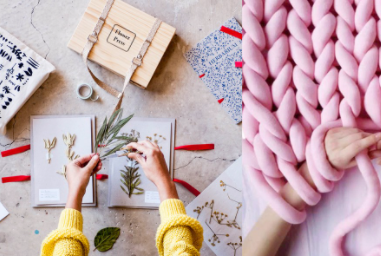
A large number of people admit that during lock downs and quarantine, they actually took the time to learn a new skill or hobby. Much untapped creativity was suddenly explored. People began to learn how to cook, crochet, knit, paint, draw, and some even learned a foreign language. Whatever the new-found talent, this was definitely a perk side of the pandemic. All of the newly learned talent and skills will not soon be forgotten moving forward. Some people even turned their new hobby into a business venture. Others found out they could sew and began mass producing masks to sell or donate.
Drive-By Parades
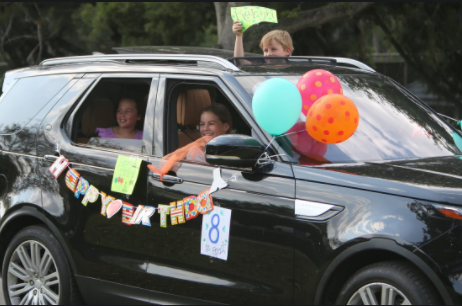
Safe, from the distance of your vehicle, drive-by parades became popular. Driving by a house with a car decorated became the go-to party on the run. People would honk and post signs to their cars wishing happy birthdays, happy anniversaries, happy graduations, and other special events. Some teachers whose school years were cut suddenly short wanted to find a way to show their students that they loved and supported them and took to their cars for a parade. Even the Macy’s Thanksgiving Day parade was done virtually. This way of showing support will always be a creative option going forward.
Job Interviews

While many companies and small businesses were completely shut down, others were still hiring. They took to the internet to recruit new hires. Job interviews went virtual. Services like Skype or Zoom became the go-to platform on which to conduct any such interview. This meant that you could still get a face-to-face encounter. It just would be potentially hundreds or thousands of miles away. And, of course, once hired the applicant would most likely be expected to be flexible enough to also perform any job duties virtually as well. For some, a virtual interview is too intimidating. But, for others it has become the norm.
Handshakes
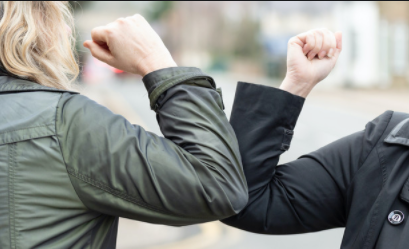
If nothing else changed for the better out of this pandemic, the foregoing of the handshake is one thing that needed to change. One very good thing about the entire pandemic is that social cultural gestures have taken a shake up. Habits that have become commonplace, like shaking hands, was suddenly frowned upon. After all, viruses are spread by hand-to-hand contact. As much physical contact as you can avoid the better. People got creative and came up with fist bumps and elbow taps to show their desire to make physical contact with the other person’s hand and to acknowledge their existence.
Home Sales

In the United States, home sales began to skyrocket as the pandemic drug on. Most likely the reason for this is the stimulus checks that every tax-paying household received along with mortgage rate dropping to record low percents. Pair record low mortgage rates with droves of families who were becoming stir crazy locked up inside their own home, and it made for a real estate boom that has continued and hopefully will keep growing as time rolls on. As long as mortgage rates remain low and the presidential election goes the correct way, house sales should continue to be a seller’s market.
Automobile Sales
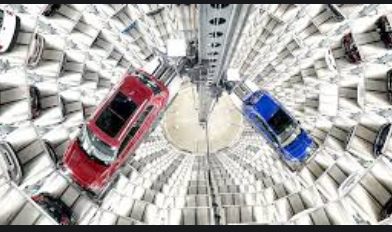
Car sales have changed to remove the middle man and those face-to-face sales negotiations that most people find awkward. Instead, during the pandemic, more cars were being bought online or from personal sellers who arrange for socially distanced sales. The car also comes sanitized in many cases. Used car prices went up as well as the car market changed. It became more convenient for the buyer and less personal for the seller. No one wanted to go into a showroom to haggle prices only a few feet away from a sales rep. Instead, anyone in the market for a vehicle took to the internet to search.
Appliances Buying
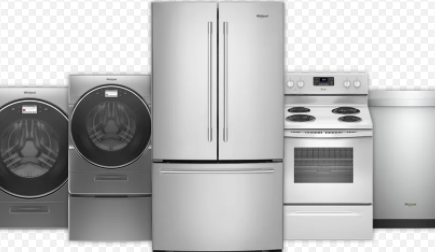
Being stuck at home isn’t so bad so long as all of the household appliances are in great working order. But, during a pandemic many people discovered that when their stove, washer, dryer, refrigerator, or dishwasher went out, there were none to be found to purchase. The only available options were floor models or those left over in the warehouse, because factories were also on shut down and were not manufacturing these appliances. Many stores would not even take orders to be placed on a waiting list because they could not guarantee when the appliance would be ready for delivery.
Personal Banking
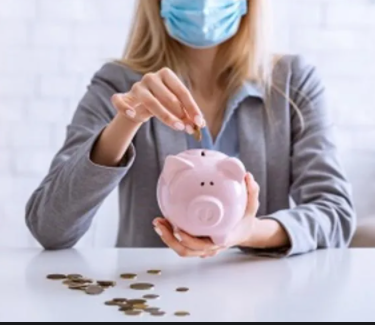
Most banks shut down their lobby services and were open only to online banking or drive-through services if at all. Many families found themselves reaching rock bottom in their savings or checking accounts. Some had to tap into their retirement savings or borrow to pay the bills. Everything became virtual for awhile with no personalized services for home loans or car loans. Most found out the hard way that they didn’t have enough savings to carry them through without being able to go to work to earn more money to keep the cash flowing. Ultimately, personal banking became more online and e-wallet or virtual.
Family Traditions

The pandemic changed everything including family traditions. Holidays were now done at a distance or under the radar against local orders. If groups dared to gather at all, it was done with masks and plenty of sanitizers and even gloves on hand. Other families have chosen not to risk the traditional gatherings to uphold family traditions. Instead, they have become flexible with every ebb and flow. It is the family who is able to flex and bend traditions to get creative in how they celebrate who will continue to thrive throughout the pandemic no matter how long it stretches on. Who knows, when it is all said and done, they may have come up with some very creative new traditions that the family embraces.
Sporting Events
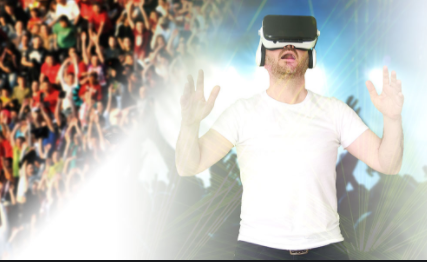
March Madness without basketball happened. The Olympics were postponed. All major sporting events took a huge hit in an effort to keep their players and fans safe. Any sports that were able to get together to play were mostly done in front of cardboard cutout fans and socially distanced team mates. There were other restrictions put in place as well, that will hopefully carry forward. Rules like, no high fives or chewing and spitting tobacco were a step forward. Additionally, large arenas have had to come up with methods to ensure that fans who visit to see a game will be safe.
New Economy
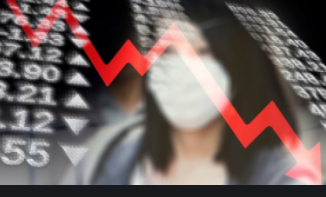
In response to the pandemic, every country around the world had to figure out a way for their own country’s economy to survive while risking a worldwide economic crash. In response to this, central banks in many countries slashed interest rates in an attempt to make borrowing cheaper and encourage spending to boost the economy. Global markets began to show signs of recovery to some degree as their governments began to intervene, but some analysts have warned that there could be a second or third wave that could plunge the worldwide economy even deeper in despair especially if unemployment rates continue to climb.
Giving Is Up
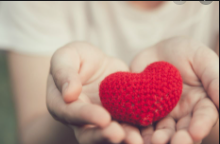
Throughout the pandemic with all of its pain and misery and inconvenience, one good thing has popped up. The act of giving is on the rise. Donations have been going up, especially through online options. In Singapore, for instance, one fundraising website has seen donations heading upward since February. All around the world this trend is consistent as fellow people have a heart and want to share what they can, even if they have very little themselves to offer. The needs that have cropped up as a result of the pandemic has pulled at the heartstrings of many who just want to help.
Online And Drive-In Concerts

Anyone who has any job that is intended to draw a crowd or entertain, like musicians do, had to readjust how they do things. Concerts quickly went online. But, bands and voice instructors soon discovered that there was really no great option to blend voices together in real time. So, bands and solo musicians began to get creative. Many found opportunities with drive-in concerts. They could perform at a safe distance away from the audience. Likewise, the audience was safely distanced inside their vehicles. Outside events paired with jumbo tron screens, and the only real drawback was the weather with hot summer days or storms.
Pandemic Dating

While married couples or those who were already together struggled to find places to go out on dates, the ones really hit hard were singles. How do you find someone to have a relationship with when you cannot meet in person or go out to places where you would typically bump into someone you might end up spending the rest of your life with? Even online dating sites could not promise a follow-through on an in-person date. Besides the usual text messaging and video conferencing connections, some couples chose to go on a virtual date by playing online games or watching a movie at the same time from their own individual and separate homes.
Room to Roam
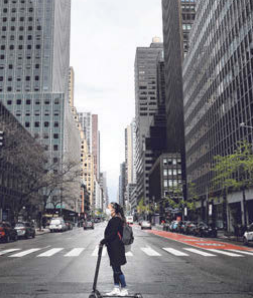
For those who were able to get out and about, they discovered that the streets were empty. In crowded cities like New York, the usually bustling streets jammed with people became ghost towns. While there is a somewhat eerie feel to it all, some found it peaceful. Residents started to become used to the silent streets and shops. The roads were more open, sometimes completely deserted as they emptied of cars and pedestrians walking about on their way to and from work, shopping, or out for a night on the town. All of that was quieted which also had its perks.
We Learned How To Look Good On Zoom
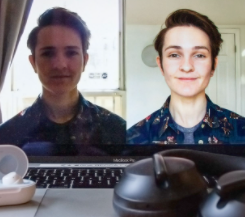
With everything from dance lessons to school classes to business meetings and even live concerts going online, everyone suddenly got a crash course in online etiquette. For starters, lighting matters. Also, it is not good manners to be on camera lying in bed in pajamas or only dressing from the waist up. People began to play around with backgrounds and found the one spot in their homes that was not cluttered. Many still don’t have the hang of it all and will leave their mics unmuted or don’t realize the camera is at a very bad angle looking up at a double chin or nostrils. So, there is still room for improvement.
Oil Prices Dropped

No one was on the streets to use up the gasoline which was manufactured with crude oil. In countries like the United States, oil prices plunged to record lows. For the first time in history, the US oil prices turned negative. As people were ordered to stay at home, less people were on the streets. Output exceeded the demand for use. Storage facilities reached full capacity with the abundance of unused crude oil. At the gas tank, consumers saw prices drop. Some automobile insurance companies even responded to the lack of vehicle usage by dropping rates or sending refunds to their clients. Another perk was that with less use of oil, the environment became cleaner.
Preparing For The Next Pandemic

Thankfully pandemics are not a common occurrence. Though, some scientists think that the human race could be facing extinction if we keep ignoring issues like this. We need to be ready for the next pandemic even though it is difficult to predict when that will be or what type of illness will strike next. Will we need ventilators or hospital space? Who knows? But, we need to have a plan in place that is ready to launch into action when it occurs. We need to do everything possible in order to be prepared in every regard, financially, physically, and emotionally. Ultimately, those who are able to be flexible and adapt to change are the ones who will succeed.

